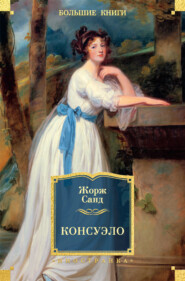По всем вопросам обращайтесь на: info@litportal.ru
(©) 2003-2025.
✖
The George Sand-Gustave Flaubert Letters
Настройки чтения
Размер шрифта
Высота строк
Поля
CCC. TO GUSTAVE FLAUBERT, in Paris
Nohant, 18th and 19th December, 1875
At last I discover my old troubadour who was a subject of chagrin and serious worry to me. Here you are yourself again, trusting in the very natural luck of external events, and discovering in yourself the strength to control them, whatever they may be, by effort. What is it that you call some one in HIGH FINANCE? For my part, I don't know; I am in relations with Victor Borie. He will do me a favor if he sees it to his interest. Must I write him?
Then you are going to start grubbing again? So am I; for since Flamarande I have done nothing but mark time, while waiting for something better. I was so ill all summer! but my strange and excellent friend Favre has cured me wonderfully, and I am taking a new lease on life.
What's our next move? For you, of course, DESOLATION, and, for me, consolation. I do not know on what our destinies depend; you see them pass, you criticise them, you abstain from a literary appreciation of them, you limit yourself to depicting them, with deliberate meticulous concealment of your personal feelings. However, one sees them very clearly through your narrative, and you make the people sadder who read you. As for me, I should like to make them less sad. I cannot forget that my personal victory over despair was the work of my will and of a new way of understanding which is entirely opposed to what I had before.
I know that you criticise the intervention of the personal doctrine in literature. Are you right? Isn't it rather a lack of conviction than a principle of esthetics? One cannot have a philosophy in one's soul without its appearing. I have no literary advice to give you, I have no judgment to formulate on the author friends of whom you speak. I, myself have told the Goncourts all my thought; as for the others, I firmly believe that they have more education and more talent than I have. Only I think that they, and you especially, lack a definite and extended vision of life. Art is not merely painting. True painting, moreover, is full of the soul that wields the brush. Art is not merely criticism and satire: criticism and satire depict only one side of the truth.
I want to see a man as he is, he is not good or bad, he is good and bad. But he is something more … nuance. Nuance which is for me the purpose of art, being good and bad, he has an internal force which leads him to be very bad and slightly good, – or very good and slightly bad.
I think that your school is not concerned with the substance, and that it dwells too much on the surface. By virtue of seeking the form, it makes the substance too cheap! it addresses itself to the men of letters. But there are no men of letters, properly speaking. Before everything, one is a man. One wants to find man at the basis of every story and every deed. That was the defect of l'Education sentimentale, about which I have so often reflected since, asking myself why there was so general a dislike of a work that was so well done and so solid. This defect was the absence of ACTION of the characters on themselves. They submitted to the event and never mastered it. Well, I think that the chief interest in a story is what you did not want to do. If I were you, I would try the opposite; you are feeding on Shakespeare just now, and you are doing well! He is the author who puts men at grips with events; observe that by them, whether for good or for ill, the event is always conquered. In his works, it is crushed underfoot.
Politics is a comedy just now. We have had tragedy, shall we end with the opera or with the operetta? I read my paper conscientiously every morning; but aside from that moment, it is impossible for me to think of it or to be interested in it. All of it is absolutely void of any ideal whatsoever, and therefore I cannot get up any interest in any of the persons concerned in that scullery. All of them are slaves of fact because they have been born slaves of themselves.
My dear little girls are well. Aurore is a well-set-up girl, a beautiful upright soul in a strong body. The other one is grace and sweetness. I am always an assiduous and a patient teacher, and very little time is left to me to write PROFESSIONALLY, seeing that I cannot keep awake after midnight and that I want to spend all my evening with my family; but this lack of time stimulates me and makes me find a true pleasure in digging away; it is like a forbidden fruit that I taste in secret.
All my dear world embraces you and rejoices to hear that you are better. Did I send you Flamarande and the pictures of my little girls? If not, send me a line, and I send you both.
Your old troubadour who loves you,
G. Sand
Embrace your charming niece for me. What a good and lovely letter she wrote me! Tell her that I beg her to take care of herself and to please get well quickly.
What do you mean! Littre a senator? It is impossible to believe it when one knows what the Chamber is. All the same it must be congratulated for this attempt at self-respect.
CCCI. TO GEORGE SAND
December, 1875
Your good letter of the 18th, so maternally tender, has made me reflect a great deal. I have reread it ten times, and I shall confess to you that I am not sure that I understand it. Briefly, what do you want me to do? Make your instructions exact.
I am constantly doing all that I can to enlarge my brain, and I work in the sincerity of my heart. The rest does not depend on me.
I do not enjoy making "desolation," believe me, but I cannot change my eyes! As for my "lack of convictions," alas! I choke with convictions. I am bursting with anger and restrained indignation. But according to the ideal of art that I have, I think that the artist should not manifest anything of his own feelings, and that the artist should not appear any more in his work than God in nature. The man is nothing, the work is everything! This method, perhaps mistakenly conceived, is not easy to follow. And for me, at least, it is a sort of permanent sacrifice that I am making to good taste. It would be agreeable to me to say what I think and to relieve Mister Gustave Flaubert by words, but of what importance is the said gentleman?
I think as you do, dear master, that art is not merely criticism and satire; moreover, I have never tried to do intentionally the one nor the other. I have always tried to go into the soul of things and to stick to the greatest generalities, and I have purposely turned aside from the accidental and the dramatic. No monsters and no heroes!
You say to me: "I have no literary advice to give you; I have no judgments to formulate on the authors, your friends, etc." Well? indeed! but I implore advice, and I am waiting for your judgments. Who, pray, should give them, and who, pray, should formulate them, if not you?
Speaking of my friends, you add "my school." But I am ruining my temperament in trying not to have a school! A priori, I spurn them, every one. The people whom I see often and whom you designate cultivate all that I scorn and are indifferently disturbed about what torments me. I regard as very secondary, technical detail, local exactness, in short the historical and precise side of things. I am seeking above all for beauty, which my companions pursue but languidly. I see them insensible when I am ravaged with admiration or horror. Phrases make me swoon with pleasure which seem very ordinary to them. Goncourt is very happy when he has seized upon a word in the street that he can stick in a book, and I am well satisfied when I have written a page without assonances or repetitions. I would give all the legends of Gavarni for certain expressions and master strokes, such as "the shade was NUPTIAL, august and solemn!" from Victor Hugo, or this from Montesquieu: "the vices of Alexander were extreme like his virtues. He was terrible in his wrath. It made him cruel."
In short, I try to think well, IN ORDER TO write well. But writing well is my aim, I do not deny it.
"I lack a well-defined and extended vision of life." You are right a thousand times over, but by what means could it be otherwise? I ask you that. You do not enlighten my darkness with metaphysics, neither mine nor that of others. The words religion or Catholicism on the one hand; progress, fraternity, democracy on the other, do not correspond to the spiritual needs of the moment. The entirely new dogma of equality which radicalism praises is experimentally denied by physiology and history. I do not see the means of establishing today a new principle, any more than of respecting the old ones. Therefore I am hunting, without finding it, that idea on which all the rest should depend.
Meanwhile I repeat to myself what Littre said to me one day: "Ah! my friend, man is an unstable compound, and the earth an inferior planet."
Nothing sustains me better than the hope of leaving it soon, and of not going to another which might be worse. "I would rather not die," as Marat said. Ah! no! enough, enough weariness!
I am writing now a little silly story, which a mother can permit her child to read. The whole will be about thirty pages, I shall have two months more at it. Such is my energy, I shall send it to you as soon as it appears (not my energy, but the little story).
CCCII. TO GUSTAVE FLAUBERT, in Paris
Nohant, 12th January, 1876
My cherished Cruchard,
I want to write to you every day; time is lacking absolutely. At last here is a free moment; we are buried under the snow; it is the sort of weather that I adore: this whiteness is like general purification, and the amusements of the house seem more intimate and sweeter. Can anyone hate the winter in the country? The snow is one of the most beautiful sights of the year!
It appears that I am not clear in my sermons; I have that much in common with the orthodox, but I am not of them; neither in my idea of equality, nor of authority, have I any fixed plan. You seem to think that I want to convert you to a doctrine. Not at all, I don't think of such a thing. Everyone sets off from a point of view, the free choice of which I respect. In a few words, I can give a resume of mine: not to place oneself behind an opaque glass through which one can see only the reflection of one's own nose. To see as far as possible the good, the bad, about, around, yonder, everywhere; to perceive the continual gravitation of all tangible and intangible things towards the necessity of the decent, the good, the true, the beautiful.
I don't say that humanity is on the way to the heights. I believe it in spite of everything; but I do not argue about it, it is useless because each one judges according to his own personal vision, and the general aspect is for the moment poor and ugly. Besides, I do not need to be sure of the safety of the planet and its inhabitants in order to believe in the necessity of the good and the beautiful; if the planet departs from that law it will perish; if the inhabitants discard it they will be destroyed. Other stars, other souls will pass over their bodies, so much the worse! But, as for me, I want to gravitate up to my last breath, not with the certitude nor the need of finding elsewhere a GOOD PLACE, but because my sole joy is in keeping myself with my family on an upward road.
In other words, I am fleeing the sewer, and I am seeking the dry and the clean, certain that it is the law of my existence. Being a man amounts to little; we are still near the monkey from which they say we proceed. Very well! a further reason for separating ourselves still more from it and for being at least at the height of the relative truth that our race has been admitted to comprehend; a very poor truth, very limited, very humble! well, let us possess it as much as we can and not permit anyone to take it from us. We are, I think, quite agreed; but I practice this simple religion and you do not practice it, since you let yourself become discouraged; your heart has not been penetrated with it, since you curse life and desire death like a Catholic who yearns for compensation, were it only the rest eternal. You are no surer than another of this compensation. Life is perhaps eternal, and therefore work is eternal. If this is so, let us do our day's work bravely. If it is otherwise, if the MOI perishes entirely, let us have the honor of having done our stated task, it is our duty; for we have evident duties only toward ourselves and our equals. What we destroy in ourselves, we destroy in them. Our abasement lowers them, our falls drag them down; we owe it to them to remain erect so that they shall not fall. The desire for an early death, as that for a long life, is therefore a weakness, and I do not want you to admit any longer that it is a right. I thought that had it once; I believed, however, what I believe today; but I lacked strength, and like you I said: "I cannot help it." I lied to myself. One can help everything. One has the strength that one thinks one has not, when one desires ardently to GRAVITATE, to mount a step each day, to say to oneself: "The Flaubert of tomorrow must be superior to the one of yesterday, and the one of day after tomorrow more steady and more lucid still."
When you feel you are on the ladder, you will mount very quickly. You are about to enter gradually upon the happiest and most favorable time of life: old age. It is then that art reveals itself in its sweetness; as long as one is young, it manifests itself with anguish. You prefer a well-turned phrase to all metaphysics. I also, I love to see condensed into a few words what elsewhere fills volumes; but these volumes, one must have understood them completely (either to admit them or to reject them) in order to find the sublime resume which becomes literary art in its fullest expression; that is why one should not scorn the efforts of the human mind to arrive at the truth.
I tell you that, because you have excessive prejudices AS TO WORDS. In truth, you read, you dig, you work much more than I and a crowd of others do. You have acquired learning that I shall never attain. Therefore you are a hundred times richer than all of us; you are a rich man, and you complain like a poor man. Be charitable to a beggar who has his mattress full of gold, but who wants to be nourished only on well-turned phrases and choice words. But brute, ransack your own mattress and eat your gold. Nourish yourself with the ideas and feelings accumulated in your head and your heart; the words and the phrases, THE FORM to which you attach so much importance, will issue by itself from your digestion. You consider it as an end, it is only an effect. Happy manifestations proceed only from an emotion, and an emotion proceeds only from a conviction. One is not moved at all by the things that one does not believe with all one's heart.
I do not say that you do not believe: on the contrary, all your life of affection, of protection, and of charming and simple goodness, proves that you are the most convinced individual in the world. But, as soon as you handle literature, you want, I don't know why, to be another man, one who should disappear, one who destroys himself, who does not exist! What an absurd mania! what a false rule of GOOD TASTE! Our work is worth only what we are worth.
Who is talking about putting yourself on the stage? That, in truth, is of no use, unless it is done frankly by way of a chronicle. But to withdraw one's soul from what one does, what is that unhealthy fancy? To hide one's own opinion about the characters that one puts on the stage, to leave the reader therefore uncertain about the opinion that he should have of them, that is to desire not to be understood, and from that moment, the reader leaves you; for if he wants to understand the story that you are telling him, it is on the condition that you should show him plainly that this one is a strong character and that one weak.
L'Education sentimentale has been a misunderstood book, as I have told you repeatedly, but you have not listened to me. There should have been a short preface, or, at a good opportunity, an expression of blame, even if only a happy epithet to condemn the evil, to characterize the defect, to signalize the effort. All the characters in that book are feeble and come to nothing, except those with bad instincts; that is what you are reproached with, because people did not understand that you wanted precisely to depict a deplorable state of society that encourages these bad instincts and ruins noble efforts; when people do not understand us it is always our fault. What the reader wants, first of all, is to penetrate into our thought, and that is what you deny him, arrogantly. He thinks that you scorn him and that you want to ridicule him. For my part, I understood you, for I knew you. If anyone had brought me your book without its being signed, I should have thought it beautiful, but strange, and I should have asked myself if you were immoral, skeptical, indifferent or heart-broken. You say that it ought to be like that, and that M. Flaubert will violate the rules of good taste if he shows his thought and the aim of his literary enterprise. It is false in the highest degree. When M. Flaubert writes well and seriously, one attaches oneself to his personality. One wants to sink or swim with him. If he leaves you in doubt, you lose interest in his work, you neglect it, or you give it up.
I have already combated your favorite heresy, which is that one writes for twenty intelligent people and does not care a fig for the rest. It is not true, since the lack of success irritates you and troubles you. Besides, there have not been twenty critics favorable to this book which was so well written and so important. So one must not write for twenty persons any more than for three, or for a hundred thousand.
One must write for all those who have a thirst to read and who can profit by good reading. Then one must go straight to the most elevated morality within oneself, and not make a mystery of the moral and profitable meaning of one's book. People found that with Madame Bovary. If one part of the public cried scandal, the healthiest and the broadest part saw in it a severe and striking lesson given to a woman without conscience and without faith, to vanity, to ambition, to irrationality. They pitied her; art required that, but the lesson was clear, and it would have been more so, it would have been so for everybody, if you had wished it, if you had shown more clearly the opinion that you had, and that the public ought to have had, about the heroine, her husband, and her lovers.
That desire to depict things as they are, the adventures of life as they present themselves to the eye, is not well thought out, in my opinion. Depict inert things as a realist, as a poet, it's all the same to me, but, when one touches on the emotions of the human heart, it is another thing. You cannot abstract yourself from this contemplation; for man, that is yourself, and men, that is the reader. Whatever you do, your tale is a conversation between you and the reader. If you show him the evil coldly, without ever showing him the good he is angry. He wonders if it is he that is bad, or if it is you. You work, however, to rouse him and to interest him; you will never succeed if you are not roused yourself, or if you hide it so well that he thinks you indifferent. He is right: supreme impartiality is an anti-human thing, and a novel ought to be human above everything. If it is not, the public is not pleased in its being well written, well composed and conscientious in every detail. The essential quality is not there: interest. The reader breaks away likewise from a book where all the characters are good without distinctions and without weaknesses; he sees clearly that that is not human either. I believe that art, this special art of narration, is only worth while through the opposition of characters; but, in their struggle, I prefer to see the right prevail. Let events overwhelm the honest men, I agree to that, but let him not be soiled or belittled by them, and let him go to the stake feeling that he is happier than his executioners.
15th January, 1876
It is three days since I wrote this letter, and every day I have been on the point of throwing it into the fire; for it is long and diffuse and probably useless. Natures opposed on certain points understand each other with difficulty, and I am afraid that you will not understand me any better today than formerly. However, I am sending you this scrawl so that you can see that I am occupied with you almost as much as with myself.
You must have success after that bad luck which has troubled you deeply. I tell you wherein lie the certain conditions for your success. Keep your cult for form; but pay more attention to the substance. Do not take true virtue for a commonplace in literature. Give it its representative, make honest and strong men pass among the fools and the imbeciles that you love to ridicule. Show what is solid at the bottom of these intellectual abortions; in short, abandon the convention of the realist and return to the time reality, which is a mingling of the beautiful and the ugly, the dull and the brilliant, but in which the desire of good finds its place and its occupation all the same.
I embrace you for all of us.
G. Sand
CCCIII. TO GUSTAVE FLAUBERT
Nohant, 6th March, 1876

















